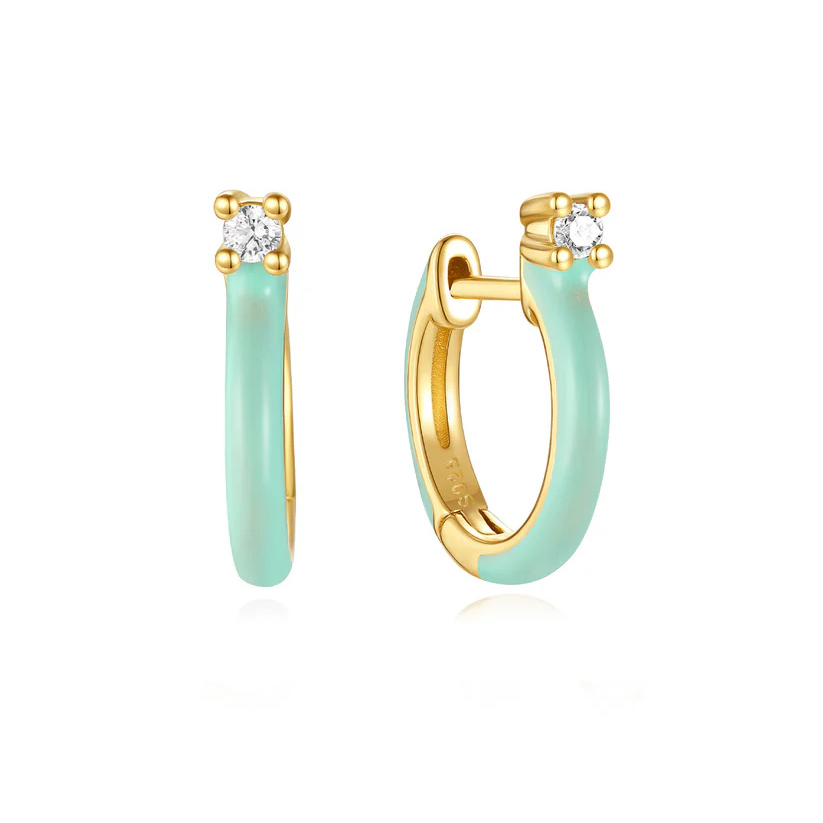The Pros and Cons of Resin (Epoxy) Earrings: What You Need to Know Before Customizing Jewelry
Introduction
Custom jewelry allows for endless creativity, and resin (epoxy) earrings have become increasingly popular due to their versatility, vibrant colors, and lightweight feel. However, before committing to a custom resin jewelry piece, it’s essential to understand both the advantages and limitations of this material.
This comprehensive guide explores:
✔ What resin earrings are and how they’re made
✔ Key benefits of choosing resin for custom jewelry
✔ Potential drawbacks and how to mitigate them
✔ Design considerations for durability & aesthetics
✔ Care tips to extend longevity
Whether you’re a jewelry designer or a buyer looking for unique handmade pieces, this article will help you make an informed decision.
1. What Are Resin (Epoxy) Earrings?
1.1 Definition & Composition
Resin earrings are made from epoxy or UV resin, a liquid plastic that hardens into a glossy, glass-like finish. They can be:
- Clear or colored (with dyes, pigments, or inclusions like glitter, dried flowers, or metallic flakes).
- Mixed with other materials (embedded in metal frames, combined with acrylic, or layered with other elements).
1.2 How They’re Made
The process involves:
- Mixing resin & hardener (a chemical reaction cures it).
- Pouring into molds (or embedding objects).
- Curing under UV light or air drying (depending on resin type).
- Sanding & polishing for a smooth finish.
2. Advantages of Custom Resin Earrings
2.1 Lightweight & Comfortable
✔ Unlike metal or glass, resin is extremely lightweight, making it ideal for:
- Large statement earrings (no heavy pulling on earlobes).
- People sensitive to heavy jewelry.
2.2 Endless Design Possibilities
✔ Resin allows for:
- Custom colors (transparent, opaque, or gradient effects).
- Embedded decorations (flowers, glitter, gold leaf, photos).
- Unique shapes (geometric, organic, or 3D designs).
2.3 Affordable Compared to Precious Metals
✔ Resin is cheaper than gold, silver, or gemstones, making it budget-friendly for:
- Trend-driven fashion jewelry.
- Experimental designs without high costs.
2.4 Hypoallergenic Options
✔ High-quality resin is non-metallic, reducing risks for those with:
- Nickel allergies (common in cheap metal jewelry).
- Skin sensitivities (if properly polished and sealed).
2.5 Quick Production & Customization
✔ Unlike metal casting, resin jewelry can be made faster (sometimes in 24-48 hours).
3. Disadvantages of Resin Earrings
3.1 Durability Issues
❌ Not as strong as metal or glass:
- Can scratch or chip if dropped.
- May yellow over time (especially with UV exposure).
3.2 Sensitivity to Heat & Chemicals
❌ Resin can warp or soften when exposed to:
- High temperatures (e.g., left in a hot car).
- Harsh chemicals (perfume, alcohol, acetone).
3.3 Not Waterproof (Long-Term)
❌ Prolonged water exposure (showering, swimming) can cause:
- Cloudiness.
- Weakening of adhesive bonds (if mixed with metal parts).
3.4 Limited Repair Options
❌ Unlike metal jewelry, resin cannot be resized or soldered if damaged.
3.5 Quality Varies Greatly
❌ Cheap resin may:
- Cure improperly (sticky or brittle).
- Contain harmful fumes (low-grade epoxy).
4. How to Choose High-Quality Resin Earrings
4.1 Opt for UV-Resistant Resin
✔ Prevents yellowing over time.
4.2 Check for Smooth Finishing
✔ No rough edges or bubbles (signs of poor craftsmanship).
4.3 Metal Components Should Be Hypoallergenic
✔ If resin is paired with metal hooks, ensure surgical steel or titanium.
4.4 Ask About Sealants
✔ A protective top coat (like automotive clear coat) enhances durability.
5. Care & Maintenance Tips
✅ Store in a cool, dry place (away from sunlight).
✅ Clean with a soft cloth (no alcohol-based cleaners).
✅ Remove before swimming/showering.
✅ Avoid extreme temperatures.
6. Conclusion: Is Resin Jewelry Right for You?
Best For:
- Fashion-forward, lightweight designs.
- Budget-friendly custom pieces.
- Artistic, colorful statement jewelry.
Not Ideal For:
- Heavy daily wear.
- Those seeking heirloom-quality jewelry.
By understanding these pros and cons, you can decide if custom resin earrings align with your needs—or if alternative materials (like enamel or acrylic) might be better.
